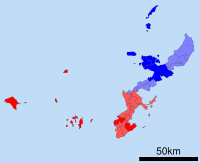
Preschool as an Arena for Developing Teacher Knowledge Concerning Children’s Language Learning
Sign Up to like & getrecommendations! Published in 2017 at "Early Childhood Education Journal"
DOI: 10.1007/s10643-015-0756-8
Abstract: Abstract The most important benefits of international comparisons are the indications that make hidden national characteristics visible and shed new light on the system in each country. From a comparative perspective, this article explores what… read more here.
Keywords: children language; preschool arena; language learning; concerning children ... See more keywords

Early-Literacy Intervention Conducted by Caregivers of Children with Language Impairment: Implementation Patterns Using Survival Analysis
Sign Up to like & getrecommendations! Published in 2019 at "Journal of Autism and Developmental Disorders"
DOI: 10.1007/s10803-019-03925-1
Abstract: This study examined implementation of an evidence-based home reading program by caregivers of children with language impairment. Caregivers received materials and supports to read with their children for 15 weeks, four times weekly; in total,… read more here.
Keywords: language impairment; children language; caregivers children; implementation ... See more keywords

Comparing the effects of different book reading techniques on young children’s language development
Sign Up to like & getrecommendations! Published in 2020 at "Reading and Writing"
DOI: 10.1007/s11145-020-10091-9
Abstract: The purpose of this research study is to compare the effects of digital, dialogic and traditional reading on children’s language development aged 48–66 months. Fifty-six randomly selected children enrolled in three different classrooms in a public… read more here.
Keywords: children language; traditional reading; language; language scores ... See more keywords

Linguistic environment of preschool classrooms: What dimensions support children’s language growth?
Sign Up to like & getrecommendations! Published in 2018 at "Early Childhood Research Quarterly"
DOI: 10.1016/j.ecresq.2017.09.003
Abstract: Abstract Individual differences in young children’s language acquisition reflect in part the variability in the language-learning environment that they experience, both at home and in the classroom. Studies have examined various dimensions of the preschool… read more here.
Keywords: classroom; children language; language; growth ... See more keywords

Informal language stimulation rather than corrective feedback matters in Estonian children's language performance
Sign Up to like & getrecommendations! Published in 2019 at "Learning and Instruction"
DOI: 10.1016/j.learninstruc.2019.101221
Abstract: Abstract The study examined associations between Estonian children's language performance and their mothers' self-reported language teaching practices, and factors related to the frequency of using these language teaching practices. Mothers reported their language teaching practices,… read more here.
Keywords: corrective feedback; language stimulation; children language; language ... See more keywords

Socio-cognitive engagement (but not socioeconomic status) predicts preschool children's language and pragmatic abilities.
Sign Up to like & getrecommendations! Published in 2021 at "Journal of child language"
DOI: 10.1017/s0305000921000295
Abstract: Parental socioeconomic status (SES) strongly influences children's language abilities but less is known about its influence on pragmatic abilities (e.g., inferring intentions from relevance implicatures). Moreover, by focussing on SES, the role of socio-cognitive engagement… read more here.
Keywords: socio cognitive; socioeconomic status; children language; cognitive engagement ... See more keywords

[Multilingual children and language impairment].
Sign Up to like & getrecommendations! Published in 2018 at "Zeitschrift fur Kinder- und Jugendpsychiatrie und Psychotherapie"
DOI: 10.1024/1422-4917/a000599
Abstract: Multilingual children and language impairment Abstract. For many children with a migration background, difficulties acquiring their second language skills influences their educational success. Because of the wide range of languages and their varieties, which are… read more here.
Keywords: multilingual children; language impairment; children language; children migration ... See more keywords

Teaching Low-Income Spanish-Speaking Caregivers to Implement EMT en Español With Their Young Children With Language Impairment: A Pilot Study.
Sign Up to like & getrecommendations! Published in 2018 at "American journal of speech-language pathology"
DOI: 10.1044/2017_ajslp-16-0228
Abstract: Purpose This study examined the effectiveness of teaching low-income Spanish-speaking caregivers of young children with language impairment a naturalistic language intervention, EMT en Español. Method A single-case, multiple-baseline, across-behaviors design replicated across 3 caregiver-child dyads… read more here.
Keywords: speaking caregivers; language impairment; children language; young children ... See more keywords

Diagnostic Accuracy of the Sampling Utterances and Grammatical Analysis Revised (SUGAR) Measures for Identifying Children With Language Impairment.
Sign Up to like & getrecommendations! Published in 2019 at "Language, speech, and hearing services in schools"
DOI: 10.1044/2018_lshss-18-0050
Abstract: Purpose The purpose of this study was twofold: (a) to determine the diagnostic accuracy of the four Sampling Utterances and Grammatical Analysis Revised (SUGAR) metrics, including total number of words, mean length of utteranceSUGAR, words… read more here.
Keywords: children language; sugar; sampling utterances; language ... See more keywords

Feasibility of Assessing Expressive and Receptive Vocabulary via Telepractice for Early Elementary-Age Children With Language Impairment.
Sign Up to like & getrecommendations! Published in 2022 at "Language, speech, and hearing services in schools"
DOI: 10.1044/2021_lshss-21-00057
Abstract: PURPOSE Due to the COVID-19 pandemic, millions of school-age children with language impairment (LI) and their speech-language pathologists (SLPs) relied on telepractice service delivery models. Unfortunately, the dearth of evidence and procedural guidance available to… read more here.
Keywords: language impairment; language; children language; via telepractice ... See more keywords

Word explanation and content expansion during storybook reading: relation to SES and children’s language
Sign Up to like & getrecommendations! Published in 2018 at "Early Child Development and Care"
DOI: 10.1080/03004430.2016.1230107
Abstract: ABSTRACT We examined the relation between mothers’ word explanation and story content expansion during shared book reading, family socio-economic status (SES) and children’s language. The participants included 90 mothers and their children (aged 5–6 years)… read more here.
Keywords: word; content expansion; word explanation; children language ... See more keywords